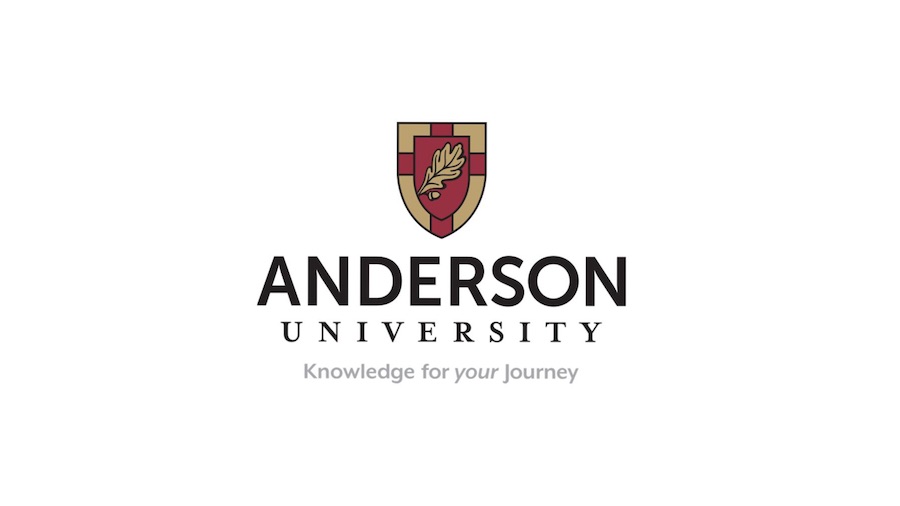This past spring, a panel discussion at Anderson University went deep into how the Christian church relates to immigrants and explores issues surrounding immigration.
The Anderson University Center for Global Engagement received a grant from the CCCU to sponsor events that promote a Biblical Worldview of Immigration. With grant funding, a CEP (Curriculum Enhancement Program) event titled “The Gospel and Immigration” was organized.
During the recent event, Dr. Tim McKnight, associate professor of missions and youth ministry in the Clamp Divinity School, moderated a panel discussion that included Dr. Gilbert Eyabi, who chairs Anderson University’s math program and is interim dean of the College of Engineering; and Dr. Channing Crisler, director of the M.Div. program at Anderson University and associate professor of New Testament and Greek.
In front of an audience composed of Anderson University students, faculty, staff and others, panelists responded to questions of how Old Testament and New Testament scripture relate to the issue of immigration and how Christians and churches in the Anderson area can minister to immigrants. Questions were also posed about how Anderson University, as a campus community, ministers to people from other countries who work and study on our campus.
Dr. McKnight, who is the lead church planter and pastor of Mosaic Church of Anderson, took a missiological view of the topic.
“I went to Rev. 7:9-11 where people from every tribe, tongue and nation are around the throne of Christ worshiping him… We see people all over the globe together. Channing and Gilbert brought this out the fact that Genesis 1:26-27 says that we’re made in God’s image, so everyone has inherent value. So we’ve got those truths from scripture that people have inherent value and we’ve got people from every tribe, tongue and nation around the throne. It begs the question, ‘How did they get there?’ So now we go to Matthew 28, the Great Commission, to make disciples of all the nations,” McKnight said. “The Bible gives a strong foundation for the nations and people—every tribe, tongue and nation—being a gospel issue.”
While the Christian church has a longstanding tradition of sending missionaries out to other nations, Dr. Eyabi asserted that opportunities to interact with people from other cultures are all around us.
He said, “All Christians, in a sense, are immigrants, on this earth because our real citizenship is in heaven.”
Dr. Crisler shared biblical foundations on immigration.
“I tried to balance the reality that in scripture God’s people are oftentimes like immigrants. Peter speaks about us being still nomadic people—strangers and aliens in the world,” Dr. Crisler said. “All the way from Abraham up until the New Testament with the New Testament Church, there is this quality about God’s people, sort of a migratory sense to who they are.”
“The Old Testament taught that the Hebrew people were supposed to treat immigrants like their own neighbors and to care for them like that. Going into the New Testament, Christ emigrated to Egypt then came back to Israel because Herod was persecuting the infants and the family fled to Egypt. Also, the idea of Christ’s command to love your neighbor as yourself extends to immigrants,” McKnight said.
“The more practical I think in terms like engaging immigrants in our own community would just be to show them the love of Christ and try to put ourselves in their shoes and think about all the ways our community might be unfamiliar to them. Just the smallest things we take for granted in everyday life. Maybe just coming alongside them through a ministry in your church or a parachurch organization, but just helping them acclimate to living in America, specifically Anderson County,” Dr. Crisler said.
Dr. Eyabi, a native of Cameroon and pastor of Freedom Center in Anderson, drew from his own experience of recently emigrating to the United States.
“Imagine how lost you would be if you were an immigrant from another country,” Dr. Eyabi said. “My wife is American. The first time she visited Africa, she understood the plights of immigrants in the USA. At the airport in Cameroon, everyone she met spoke French only, although they can speak English also. She does not know a single word in French. Fortunately for her, I was there and helped her navigate the airport. Put yourself in their shoes and help them as much as you can, not as helping a lesser person than you but as standing alongside an equal,” Dr. Eyabi said.
“Immigrants are here with us and we can purposefully reach them as a church and some of them will take the gospel back to their areas when they return,” Dr. Eyabi said. “Pastors should exercise their responsibility to address the issue from a biblical and missiological perspective. We may help sow in the hearts of people a love for their immigrant neighbor and also help shape the national conversation on immigration.”
Details about the Anderson University College of Christian Studies can be found online.

